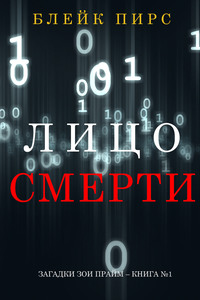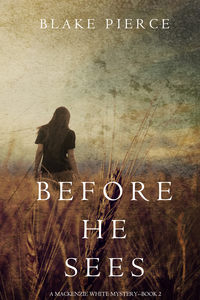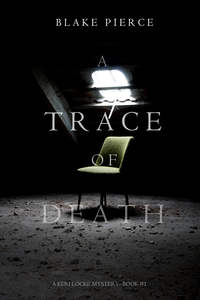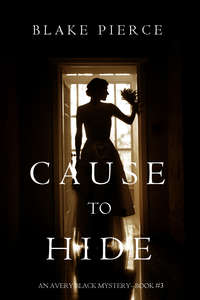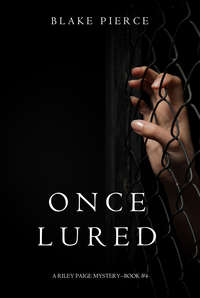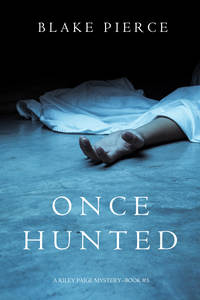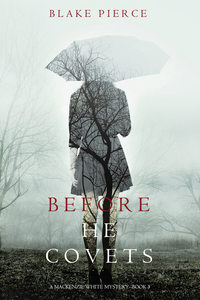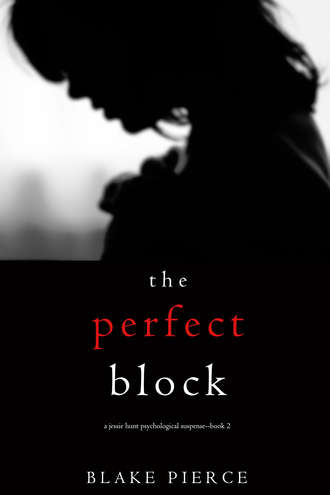
Полная версия
The Perfect Block
Of the three field cases she’d shadowed, two were robberies and one was arson. In each instance, the suspect confessed within minutes of arrest, once without even being questioned. The detective had to Mirandize the guy and get him to re-confess.
But today might finally be different. It was the Monday just before Christmas, and Jessie hoped the spirit of the season might make Hernandez more generous than some of his colleagues. She joined him and his partner for that day, a bespectacled forty-something guy named Callum Reid, as they investigated the death of a junkie found at the end of the alley.
He still had a needle sticking out of his left arm and the uniformed officer had only called in the detectives as a formality. As Hernandez and Reid talked to the officer, Jessie ducked under the police tape and approached the body, making sure not to step anywhere sensitive.
She looked down at the young man, who didn’t look any older than her. He was African-American, with a high fade haircut. Even lying down and shoeless, she could tell he was tall. Something about him felt familiar.
“Should I know who this guy is?” she called out to Hernandez. “I feel like I’ve seen him somewhere before.”
“Probably,” Hernandez shouted back. “You went to USC, right?”
“Yeah,” she said.
“He likely overlapped with you for a year or two. His name was Lionel Little. He played basketball there for a couple of years before going pro.”
“Okay, I think I remember him,” Jessie said.
“He had a gorgeous left-handed finger roll shot,” Detective Reid recalled. “Reminded me a little of George Gervin. He was a highly touted rookie but he ended up washing out after a few years. He couldn’t play defense and he didn’t know how to handle all the money or the NBA lifestyle. He only lasted three seasons before he was out of the league entirely. The drugs pretty much took over at that point. Somewhere along the line, he ended up on the streets.”
“I’d see him around from time to time,” Hernandez added. “He was a sweet kid—never cited him for more than loitering or public urination.”
Jessie leaned over and looked more closely at Lionel. She tried to imagine herself in his position, a lost kid, addicted but not much trouble, wandering the back alleys of downtown L.A. for the last few years. Somehow he’d managed to maintain his habit without overdosing or ending up in jail. And yet here he was, lying in an alley, needle in his arm, shoeless. Something didn’t feel right.
She knelt down to get a closer look at where the needle jutted out from his skin. It was jammed in deep on his otherwise smooth skin.
His smooth skin…
“Detective Reid, you said Lionel had a nice left-handed finger roll, right?”
“Thing of beauty,” he replied appreciatively.
“So can I assume he was left-handed?”
“Oh yeah, he was totally left-hand dominant. He had real trouble going to his right. Defenders would overplay him to that side and completely shut him down. It was another reason he never made it in the pros.”
“That’s weird,” she muttered.
“What is it?” Hernandez asked.
“It’s just…can you guys come over here? There’s something that doesn’t make sense about this crime scene to me.”
The detectives walked over and stopped right behind where she was kneeling. She pointed at Lionel’s left arm.
“That needle looks like it’s halfway through his arm and it’s not anywhere near a vein.”
“Maybe he had bad aim?” Reid suggested.
“Maybe,” Jessie conceded. “But look at his right arm. There’s a precise line of tracks that all follow along his veins. It’s pretty meticulous for a drug addict. And it makes sense, because he was a lefty. Of course he’d inject his right arm with his dominant hand.”
“That does make sense,” Hernandez agreed.
“So then I thought maybe he was just sloppier when he used his right,” Jessie continued. “Like you said, Detective Reid, maybe he just had bad aim.”
“Exactly,” Reid said.
“But look,” Jessie said pointing at the arm. “Other than the spot with the needle in it right now, his left arm is smooth—no track marks at all.”
“What does that tell you?” Hernandez asked, starting to see where she was going.
“It tells me that he didn’t shoot up in his left arm, pretty much ever. From what I can tell, this isn’t the kind of guy who would let someone else shoot him up in that arm either. He had a system. He was very methodical. Look at the back of his right hand. He’s got marks there too. He’d rather shoot up his hand than trust someone else. I bet if we took off his socks, we’d find track marks between the toes on his right foot too.”
“So you’re suggesting he didn’t overdose?” Reid asked skeptically.
“I’m suggesting that someone wants to make it look like he OD’d but did a sloppy job and just jammed the needle somewhere in his left arm, the one right-handed people would typically use.”
“Why?” Reid asked.
“Well,” Jessie said cautiously, “I started thinking about the fact that his shoes are missing. None of his other clothes are. I’m wondering if, him having been a former pro player, his shoes were expensive. Don’t some of them go for hundreds of dollars?”
“They do,” Hernandez answered, sounding excited. “Actually, when he first joined the league and everyone thought he was going to be a big deal, he signed a shoe contract with an upstart company called Hardwood. Most guys signed with one of the big sneaker companies—Nike, Adidas, Reebok. But Lionel went with these guys. They were viewed as edgy. Maybe too edgy because they went out of business a few years ago.”
“So then the sneakers wouldn’t be that valuable,” Reid said.
“Actually the opposite is true,” Hernandez corrected. “Because they went bankrupt, the shoes became a hot commodity. There are only so many in circulation, so each one is quite valuable with collectors. As a spokesman for the company, Lionel probably got a truckload of them when he first signed on. And I’d be willing to bet that’s what he had on tonight.”
“So,” Jessie picked up, “someone saw him wearing the shoes. Maybe they were desperate for cash. Lionel’s not viewed as a tough guy. He’s an easy mark. So this person takes Lionel down, steals the shoes, and shoves a needle in his arm, hoping we’d just mark it down as another overdose.”
“It’s not a crazy theory,” Hernandez said. “Let’s see if we can get a search going for someone in the area wearing a pair of Hardwoods.”
“If Lionel didn’t overdose, then how did the perp kill him?” Reid mused. “I don’t see any blood.”
“I think that’s a great question…for the medical examiner,” Hernandez said, grinning as he stepped back to the other side of the police tape. “Why don’t we call one in and get some lunch?”
“I’ve got to run to the bank,” Reid said. “Maybe I’ll just meet you back at the station.”
“Okay. It looks like it’s just you and me, Jessie,” Hernandez said. “How do you feel about a street vendor hot dog? I saw a guy across the street earlier.”
“I feel like I’m going to regret it but I’ll do it anyway because I don’t want to look like a wuss.”
“You know,” he pointed out, “if you say you’re doing it so you won’t look like a wuss, everyone knows you’re just eating it for the credit. That’s kind of wussy. Just a pro tip.”
“Thanks, Hernandez,” Jessie replied. “I’m learning all kinds of new stuff today.”
“It’s called on-the-job training,” he said, continuing to rib her as they walked down the alley to the street. “Now if you put both onions and peppers on the dog, you might earn some street cred.”
“Wow,” Jessie said, grimacing. “How does your wife like lying next to you at night when you stink of that stuff?”
“Not much of a problem,” Hernandez said, then turned to the vendor to place his order.
Something in Hernandez’s response struck her as odd. Maybe his wife was simply unfazed by the smell of onions and peppers in bed. But his tone suggested that perhaps it wasn’t much of a problem because he and his wife weren’t sharing a bed these days.
Despite her curiosity, Jessie let it lie. She barely knew this man. She wasn’t about to interrogate him about the state of his marriage. But she did wish she could somehow find out if her gut was way off or if her suspicions were correct.
Speaking of guts, the vendor was looking at her expectantly, waiting for her to place her order. She looked at Hernandez’s dog, overflowing with onions, peppers, and what looked to be salsa. The detective was eyeing her, clearly ready to mock her.
“I’ll have what he’s having,” she said. “Exactly what he’s having.”
*Back at the station a few hours later, she was emerging from the ladies’ room for the third time when Hernandez approached her with a broad smile on his face. She forced herself to seem casual and ignored the uncomfortable gurgling in her lower abdomen.
“Good news,” he said, thankfully oblivious to her discomfort. “We got word that someone was picked up a few minutes ago wearing Hardwoods that match Lionel’s foot size, which was a sixteen. The person wearing the sneakers has size nine feet. So that’s—you know—a little suspicious. Good job.”
“Thanks,” Jessie said, trying to play it off as no big deal. “Any word from the M.E. on possible cause of death?”
“Nothing official yet. But when they turned Lionel over, they found a massive welt on the back side of his head. So a subdural hematoma isn’t a crazy hypothesis. That would explain the lack of blood.”
“Great,” Jessie said, happy that her theory seemed to have panned out.
“Yeah, except not so great for his family. His mother was down there to identify the body and apparently she’s a total mess. She’s a single mom. I remember reading in some article about him that she worked three jobs when Lionel was a kid. She had to think she’d be able to scale it back once he hit it big. But I guess not.”
Jessie didn’t know what to say in response so she simply nodded and stayed silent.
“I’m cutting out for the day,” Hernandez said abruptly. “Some of us are going out for a drink, if you want to join us. You’ve definitely earned one on me.”
“I would but I’m supposed to go to a club tonight with my roommate. She thinks it’s time I get back in the dating scene.”
“Do you think it’s time?” Hernandez asked, his eyebrows raised.
“I think that she is relentless and won’t let this drop unless I go out at least once, even if it’s on a Monday night. That should give me a few weeks’ grace before she starts in again.”
“Well, have a good time,” he said, trying to sound optimistic.
“Thanks. I’m positive I won’t.”
CHAPTER SIX
The club was loud and dark and Jessie could feel a headache coming on.
An hour ago, when she and Lacy had been getting ready, things seemed much more promising. Her roommate’s enthusiasm was infectious and she found herself almost looking forward to the evening as they put on their dresses and did their hair.
When they left the apartment, she couldn’t say she disagreed with Lacy’s contention that she looking “smokin’ hot.” She was wearing her red skirt with the slit up the thigh, the one she never got to bust out in her brief but tumultuous Orange County suburban existence. She wore a black sleeveless top that accentuated the muscle tone she’d developed during physical therapy.
She even deigned to put on a pair of three-inch black pumps that officially put her over six feet and in the Amazon woman club alongside Lacy. Originally she wore her brown hair up but her fashion impresario roommate convinced her to let it down, so that it cascaded past her shoulders to her upper back. Looking in the mirror, she didn’t think it was totally ridiculous when Lacy said they looked like a couple of models slumming for the evening.
But an hour later her mood had soured. Lacy was having a great time, playfully flirting with guys she wasn’t interested in and seriously flirting with girls that she was. Jessie found herself at the bar talking to the bartender, who was obviously well practiced in entertaining girls not used to the scene.
She wasn’t sure when she’d gotten so lame. It was true that she hadn’t really been single in nearly a decade. But she and Kyle had gone out to exactly these kinds of clubs back when they lived here, before the move to Westport Beach. She had never felt out of place.
In fact, she used to love to check out new downtown L.A.—DTLA to locals—clubs, bars, and restaurants, a few of which seemed to open every week. The two of them would swoop in and take over the place, trying the most unconventional menu item or drink, dancing goofily in the center of the club, oblivious to the dubious glances they got. She didn’t miss Kyle but she had to admit she longed for the life they’d shared together before everything went sideways.
A young guy, likely not older than twenty-five, sidled up next to her and eased onto the empty bar stool to her left. She gave him the once-over in the bar mirror, quietly sizing him up.
It was part of a private game she liked to play with herself. She informally called it “People Prediction.” In it, she would try to guess as much about a person’s life as possible, based only on how they looked, acted, and spoke. As she surreptitiously gave the guy a sideways glance, she was delighted to realize that the game now had professional benefits. After all, she was a junior, interim criminal profiler. This was fieldwork.
The guy was moderately attractive, with shaggy, dirty-blond hair that swept down over the right side of his forehead. He was tan, but not in a beachy kind of way. It was too even and perfect. She suspected he visited a tanning salon periodically. He was in good shape but looked almost unnaturally lean, like a wolf that hadn’t eaten in a while.
He’d clearly come from work, as he was still in “the uniform”—suit, shiny shoes, slightly loosened tie to show he was in relaxed mode. It was approaching 10 p.m. and if he was only just getting off work, it suggested he worked a job that required long office hours. Maybe finance, though that usually meant early starts more than late nights.
He was more likely a lawyer. Not for the government though; maybe an associate in his first year at some fancy firm in a nearby high rise where they were working him to death. He was well-paid, as the tailored suit proved. But he didn’t have much time to enjoy the fruits of his labor.
He seemed to be deciding what line to use on her. He couldn’t offer her a drink as she already had one that was still half full. Jessie decided to give him a hand.
“What firm?” she asked, turning to face him.
“What?”
“What legal firm are you with?” she repeated, nearly shouting to be heard over the pulsating music.
“Benson & Aguirre,” he answered in an East Coast accent she couldn’t quite identify. “How did you know I was a lawyer?”
“Lucky guess; looks like they’re really working you to the bone. You just get off?”
“About a half hour ago,” he said, his voice betraying a tone more Mid-Atlantic than New York. “I’ve been looking forward to a drink for about three hours now. I could really go for a water ice but this’ll have to do.”
He took a swig from his bottle of beer.
“How does L.A. compare to Philadelphia?” Jessie asked. “I know it’s been less than six months but do you feel like you’re adjusting okay?”
“Jeez, what the hell? Are you some kind of private detective? How do you know I’m from Philly and that I only moved here in August?”
“It’s kind of a talent I have. I’m Jessie, by the way,” she said, extending her hand.
“Doyle,” he said, shaking it. “Are you gonna tell me how you do that parlor trick? Because I’m kind of freaking out over here.”
“I wouldn’t want to spoil the mystery. Mystery’s very important. Let me ask one more question, just to complete the picture. Did you go to Temple or Villanova for law school?”
He stared at her with his mouth agape. After blinking a few times, he regrouped.
“How do you know I didn’t go to Penn?” he asked, feigning insult.
“Nah, you didn’t order any water ices at Penn. Which is it?”
“’Nova all the way, baby!” he shouted. “Go Wildcats!”
Jessie nodded appreciatively.
“I’m a Trojan girl myself,” she said.
“Oh, jeez. You went to USC? Did you hear about that Lionel Little guy—former ball player there? He got killed today.”
“I heard,” Jessie said. “Sad story.”
“I heard he was killed for his shoes,” Doyle said, shaking his head. “Can you believe that?”
“You should take care of yours, Doyle. They don’t look cheap either.”
Doyle glanced down, then leaned over and whispered in her ear, “Eight hundred bucks.”
Jessie whistled in fake awe. She was fast losing interest in Doyle, whose youthful exuberance was starting to be overwhelmed by his youthful self-satisfaction.
“So what’s your story?” he asked.
“You don’t want to try to guess?”
“Oh man, I’m not so good at that.”
“Give it a try, Doyle,” she coaxed. “You might surprise yourself. Besides, a lawyer needs to be perceptive, right?”
“That’s true. Okay, I’ll give it a shot. I’d say you’re an actress. You’re pretty enough to be one. But DTLA isn’t really actress territory. That’s more like Hollywood and points west. Model maybe? You could be. But you seem too smart to have that be your main thing as like, a career. Maybe you did some modeling as a teenager but now you’re into something more professional. Oh, I’ve got it, you’re in public relations. That’s why you’re so good at reading people. Am I right? I know I am.”
“Really close, Doyle. But not quite.”
“So what do you do then?” he demanded.
“I’m a criminal profiler with the LAPD.”
It felt good to say it out loud, especially as she watched his eyes widen in shock.
“Like that show Mindhunter?”
“Yeah, kind of. I help the police get inside the heads of criminals so they have a better chance of catching them.”
“Whoa. So do you hunt serial killers and stuff?”
“For a while now,” she said, neglecting to mention that her search was for one particular serial killer and that it had nothing to do with work.
“That’s awesome. What a cool job.”
“Thanks,” Jessie said, sensing that he’d finally built up the courage to ask what had been on his mind for a while now.
“So what’s your deal? Are you single?”
“Divorced actually.”
“Really?” he said. “You seem too young to be divorced.”
“I know, right? Unusual circumstances. It didn’t pan out.”
“I don’t want to be rude but can I ask—what was so unusual? I mean, you seem like a catch. Are you a psycho or something?”
Jessie knew he didn’t mean any harm with the question. He was genuinely interested in both the answer and in her and he’d just fumbled it horribly. Still, she could feel all her remaining interest in Doyle drain from her at that moment. In the same instant, the weight of the day and the discomfort of her high heels reared their heads. She decided to close out the evening with a bang.
“I wouldn’t call myself a psycho, Doyle. I’m definitely damaged, to the point of waking up screaming most nights. But psycho? I wouldn’t say that. Mostly we got divorced because my husband was a sociopath who murdered a woman he was sleeping with, attempted to frame me for it, and ultimately tried to kill me and two of our neighbors. He really embraced the ‘death do us part’ thing.”
Doyle stared at her, his mouth so wide it could have caught flies. She waited for him to recover, curious to see how smoothly he’d extricate himself. Not very, as it turned out.
“Oh, that really sucks. I would ask more about it but I just remembered I have an early deposition tomorrow. I should probably get home. Hope to see you around some time.”
He was off the stool and halfway to the door before she could get out a “Bye, Doyle.”
*Jessica Thurman pulled the blanket up to cover her half-freezing little body. She’d been alone in the cabin with her dead mother for three days now. She was so delirious from lack of water, warmth, and human interaction that sometimes she thought her mother was talking to her, even as her corpse slumped, unmoving, her arms held in the air by manacles attached to the wooden roof beams.
Suddenly there was banging on the door. Someone was just outside the cabin. It couldn’t be her father. He had no reason to knock. He entered whatever place he wanted whenever he wanted.
The banging came again, only this time it sounded different. There was a ringing sound mixed in. But that made no sense. The cabin didn’t have a doorbell. The ringing came again, this time without any knocking at all.
Suddenly Jessie’s eyes popped open. She lay there in bed, allowing her brain a second to process that the ringing she’d heard had come from her cell phone. She leaned over to grab it, noting that while her heart was pumping fast and her breathing was shallow, she wasn’t as sweaty as usual in the aftermath of a nightmare.
It was Detective Ryan Hernandez. As she answered the call, she glanced at the time: 2:13 a.m.
“Hello,” she said, with almost no grogginess in her voice.
“Jessie. It’s Ryan Hernandez. Sorry to call at this hour but I got a call to investigate a suspicious death in Hancock Park. Garland Moses doesn’t do middle of the night calls anymore and everyone else is already spoken for. You up for it?”
“Sure,” Jessie replied.
“If I text you the address, can you be here in thirty minutes?” he asked.
“I can be there in fifteen.”
CHAPTER SEVEN
When Jessie pulled up in front of the mansion on Lucerne Blvd. at 2:29 a.m., there were already multiple police cars, an ambulance, and a medical examiner’s vehicle out front. She got out and walked toward the front door, trying to look as professional as possible under the circumstances.
Neighbors stood on the sidewalk, many wrapped up in robes to protect against the chill of the night. This sort of thing wasn’t typical for a wealthy neighborhood like Hancock Park. Nestled between Hollywood to the north and the Mid-Wilshire district to the south, it was an enclave of old money Los Angeles; or at least as “old money” as anything in a city so unconcerned with historical tradition could be.
The people who lived here weren’t so much the movie stars or Hollywood moguls one might find in Beverly Hills or Malibu. These were the homes of the generationally wealthy, who might or might not actually work. If they did, it was often merely to avoid boredom. But they didn’t have to worry about being bored tonight. After all, one of their own was dead and everyone was curious as to who.
Jessie felt a bit of thrill as she walked up the stairs to the front door, which was marked off with yellow police tape. This was the first time she’d arrived at a crime scene unaccompanied by a detective. And that meant it was the first time she’d have to show her credentials to access a restricted area.
She remembered being so excited when she’d first gotten them. She even practiced flashing them to Lacy a few times back at the apartment. But now, as she fumbled through her coat pocket, trying to find them, she felt surprisingly nervous.
She needn’t have been. The officer at the top of the stairs barely glanced at them as he pulled back the police tape and let her pass.
Jessie found Hernandez and another detective standing just inside the foyer of the house. The younger man looked like he’d drawn the short straw. Detective Reid’s seniority must have allowed him to beg off this call. Jessie wondered why Hernandez hadn’t pulled rank too. He saw her and waved her in.
“Jessie Hunt, I don’t know if you’ve met Detective Alan Trembley. He was the detective on call tonight and he’ll be working the case with me.”
As Jessie shook his hand, she couldn’t help but notice that, with his unkempt curly blond hair and glasses halfway down the bridge of his nose, he looked as scattered as she felt.
“Our victim is in the pool house,” Hernandez said as he started walking, leading the way. “Her name is Victoria Missinger. Thirty-four years old. Married. No children. She’s in a small, hidden nook off the main room, which may help explain why it took so long to find her. Her husband called in this afternoon, saying he hadn’t been able to reach her for hours. There was some concern that it might have been a ransom situation so a full house search wasn’t done until a few hours ago. Her body was found by a cadaver dog.”
“Jesus,” Trembley muttered under his breath, making Jessie wonder just how experienced he was to be set off by the notion of a cadaver dog.





